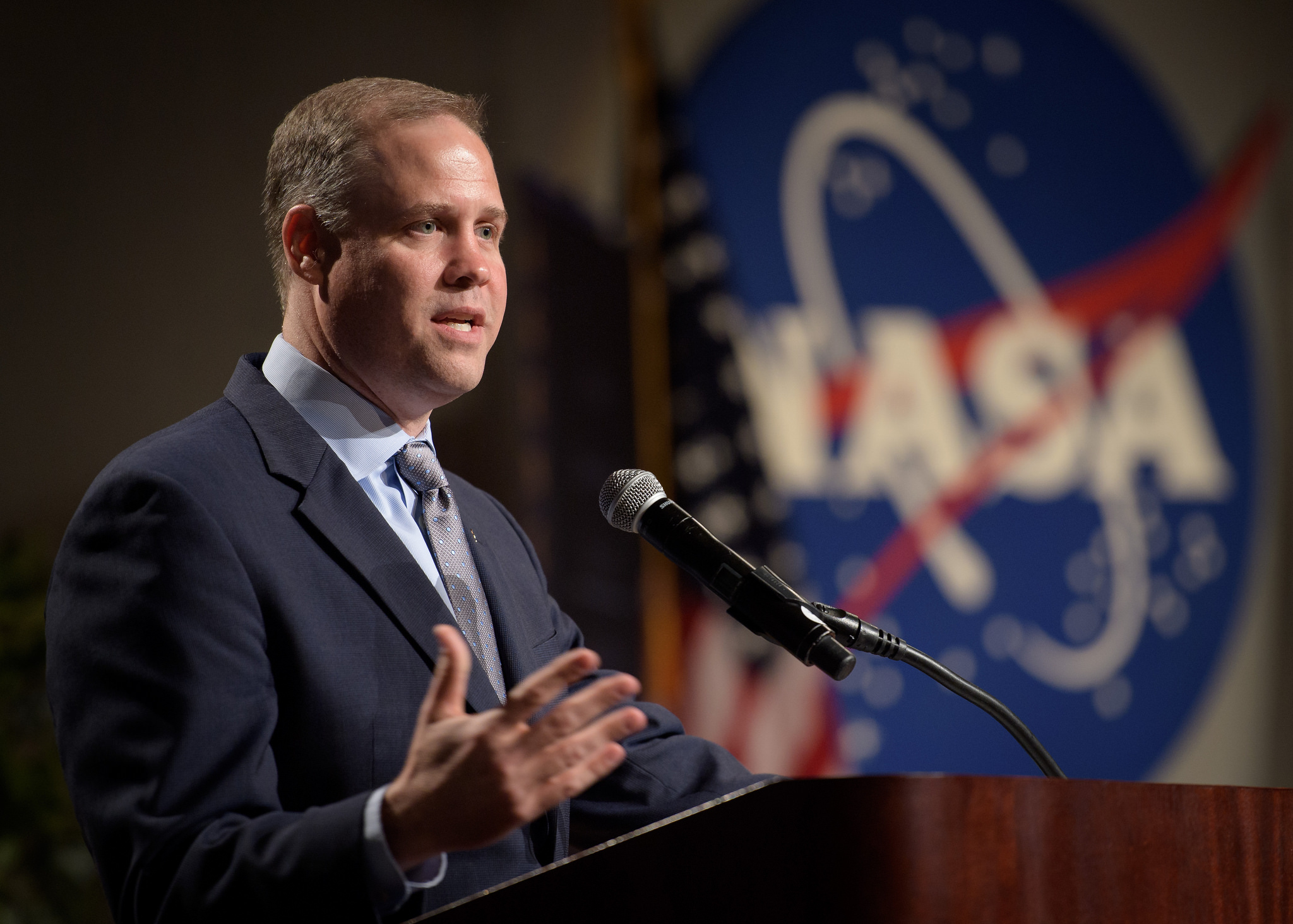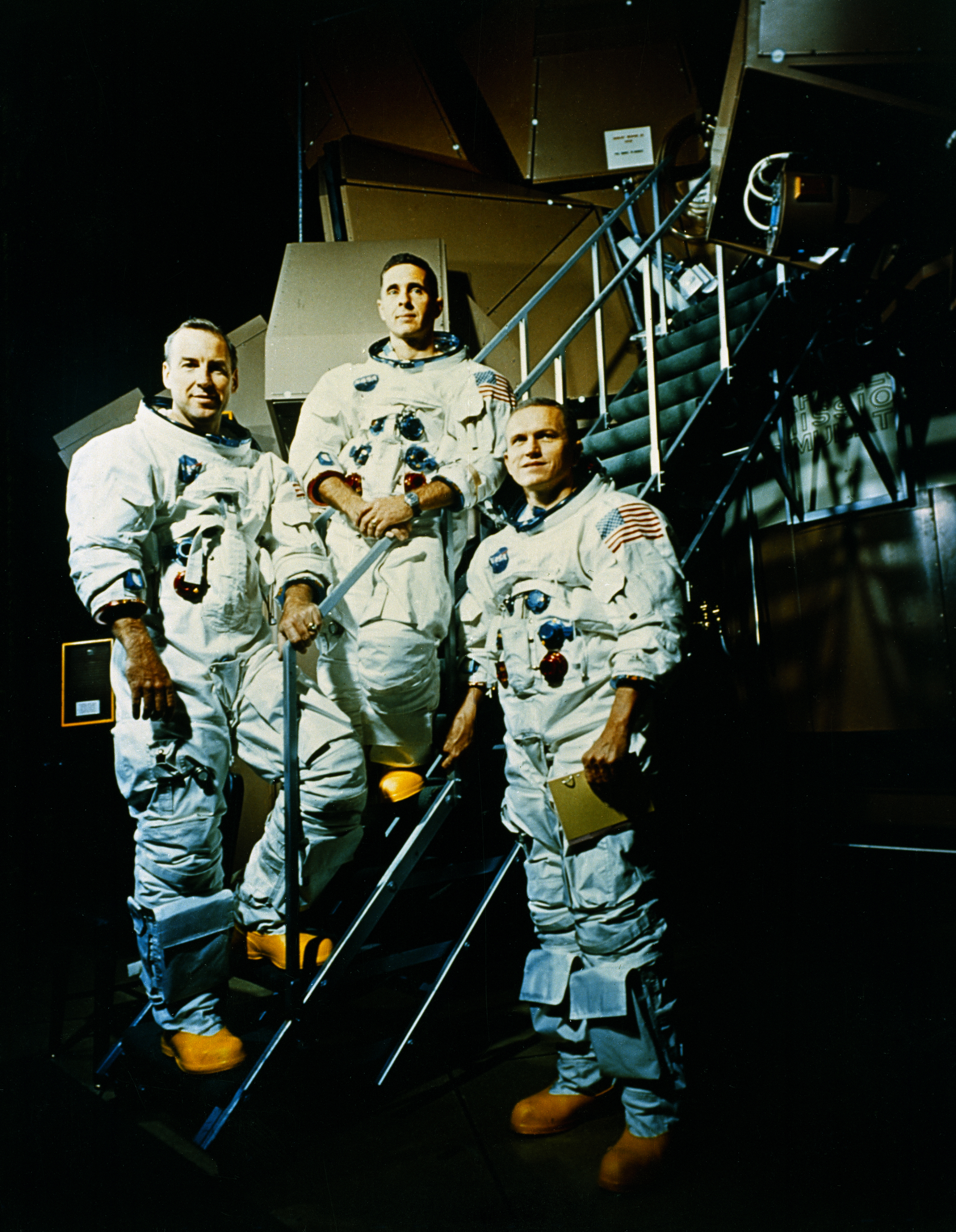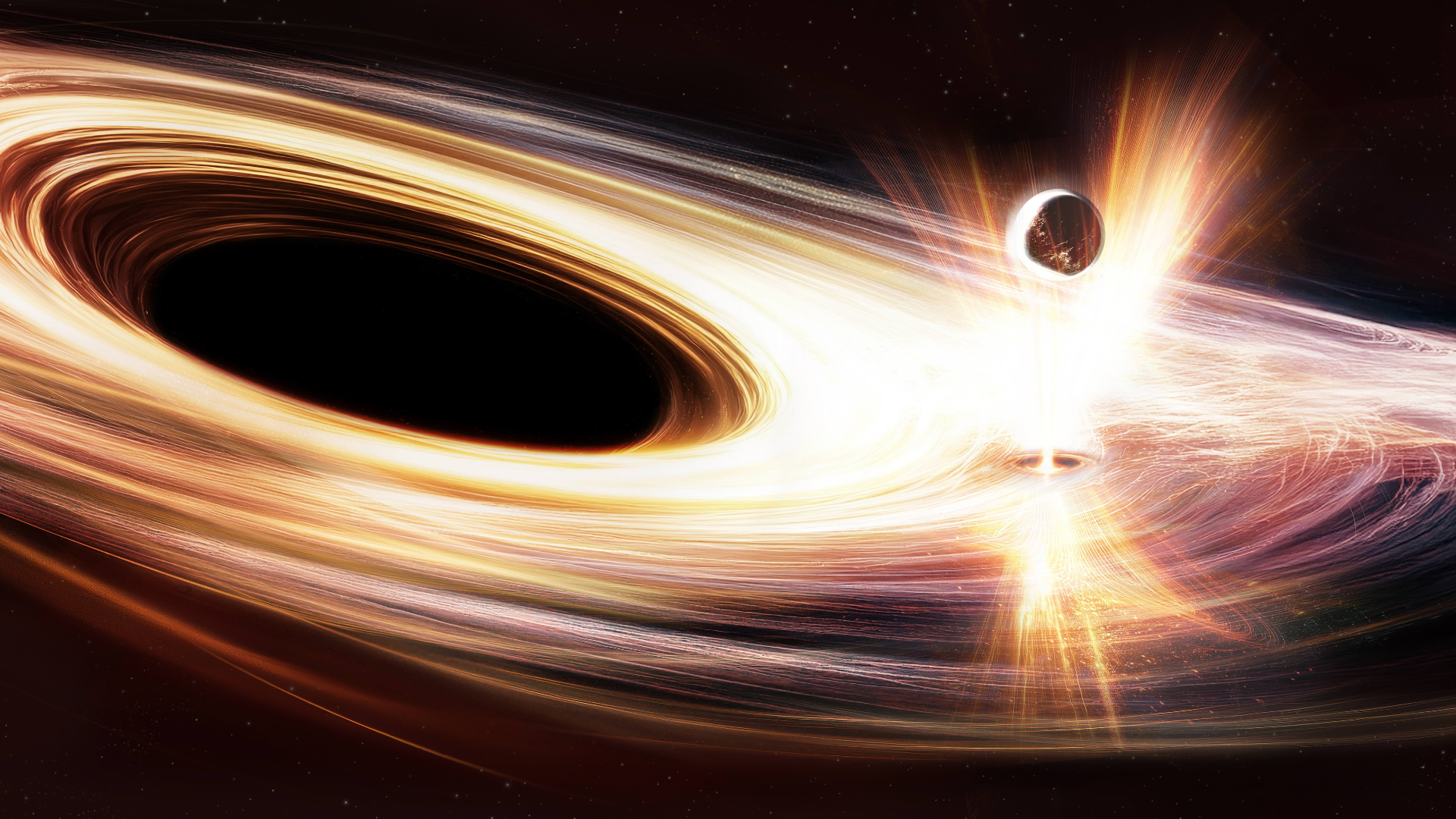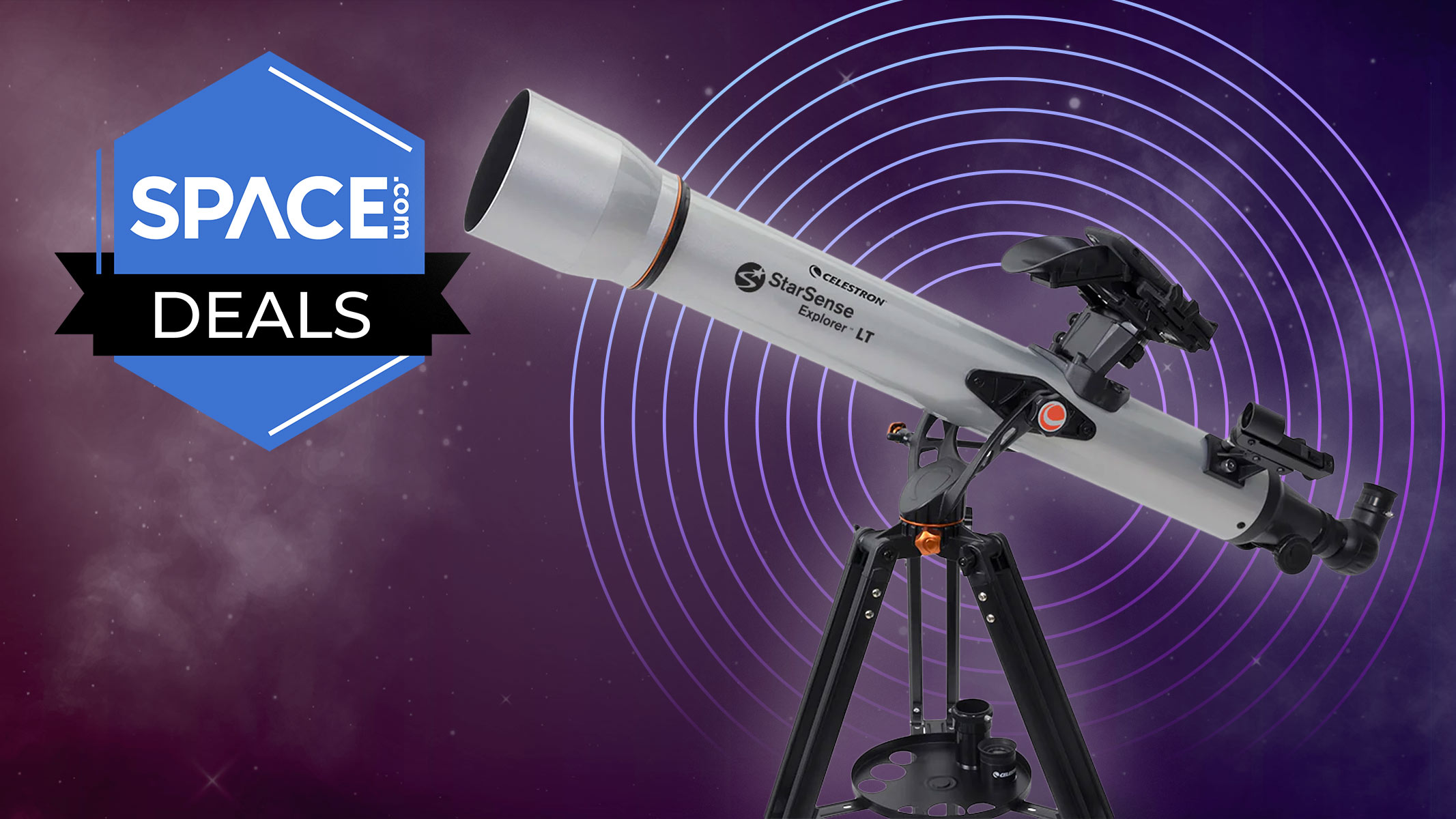Apollo 8 at 50: NASA Chief Speaks Out on a US Return to the Moon

WASHINGTON — Spaceflight has changed immensely over the past half century, with the differences highlighted by the contrast between the Apollo program's feverish push and the fitful discussions and abandoned moon missions of recent decades.
That modern pattern ends now, at least if NASA Administrator Jim Bridenstine has his way. Less than a year into his tenure, he's been a vocal advocate of establishing a long-term human presence at the moon as preparation for a future journey to Mars. In an interview held as the Washington National Cathedral Choir practiced for a later event celebrating the Apollo launches, Bridenstine looked back on humanity's history with the moon. This interview has been edited for length and clarity. [Apollo 8: NASA's First Crewed Trip Around the Moon in Pictures]
Space.com: Given the 50th anniversary of Apollo 8, in particular, and your role now leading the charge to return to the moon, what's this like for you?
Jim Bridenstine: Well, it's pretty amazing. Back then, on Apollo 8, the risk was very, very high. … And yet the intelligence said the Soviet Union was going to go to the moon by the end of the year, and so NASA made very aggressive plans, even risky plans, with the intent of beating the Soviet Union to the moon. The risk was very high — they intentionally dropped the lander — the lander of course is the lifeboat. But at the time, in this contest of economics and politics and technology, it was sufficiently important that NASA was willing to take all of this risk.
… The good thing today is it's all been proven before. We have the miniaturization of electronics, and we have reusable rockets, and we have commercial partners, and we have international partners, which we didn't have back then. … We're in great shape today because they blazed the trail. … And so what we can do today at the moon is very different than what they were able to do back then. Back then, it was just a test of technology, economics and politics. Today, it's a test of, really, international leadership, leading a coalition and doing it in an international way so that we can build goodwill and take humanity farther than it's ever gone before. It's really all built on the back of the Apollo-era astronauts, technicians, engineers [and] scientists, and I'm thrilled to be at the helm of the agency at a time like this.
Space.com: The tone of how we talk about going to the moon also seems very different. What does that mean for exploration in the bigger picture?
Get the Space.com Newsletter
Breaking space news, the latest updates on rocket launches, skywatching events and more!
Bridenstine: The International Space Station has proven a lot about human physiology and a lot about the science of living and working in a microgravity environment. We need to take what we've learned there and apply it at the moon. We go to the moon as a proving ground. When we talk about utilizing the resources of the moon, we do that not because we can't get water to the moon, not because we can't get food to the moon or whatever. We utilize the resources of the moon for one reason: because it's a proving ground for how we're going to live and work on Mars. …
[The journey to Mars] means you have to be able to live and work on another world, after having spent seven months in a microgravity environment in deep space, with harsh radiation. We know the human physiology — you lose 1 to 3 percent of your bone mass every month [in space]. Your neurovestibular system gets thrown out of whack, your heart gets deconditioned, you're pelted with radiation, and you have pressure that builds up in your cranium. All of this colludes to say, if we were to do that, say, for six months on the International Space Station and then you go to a gravity well that's, say, one-sixth of that of the Earth — in other words, the moon — does that reverse all of those other effects? We don't know the answer to that, so we still have a lot to learn. Now, if we can do it at the moon and it does prove to reverse a lot of those effects, then we can take that knowledge to Mars. … I mean, that's ultimately the horizon goal here. [Building Apollo: Photos from Moonshot History]

Space.com: How does the Apollo 8 mission in particular and the Apollo program more broadly resonate with you, especially as someone who didn't have that pivotal moment growing up watching it play out in real life?
Bridenstine: It's a big deal. I'm the first NASA administrator that was not alive when we landed on the moon. Some people suggested that that means I'm not qualified to be the NASA administrator. I would argue, no, I am qualified, because my generation is the one that missed out. My generation is the one that doesn't have that moment where I remember exactly where I was when Neil Armstrong and Buzz Aldrin first walked on the moon. We need to re-create those stunning achievements and those good moments where people remember exactly where they were when those stunning achievements were accomplished. I remember in fifth grade right where I was when Miss Powers came into my fifth grade English class crying. She came in crying because of the Challenger explosion. … I remember exactly where I was. It was a big impact on my life. Then, I remember being on the aircraft carrier when the Columbia incident happened.
Those are the space memories that are seared into my memory, [from] long before I was ever the NASA administrator. My generation has those moments. My generation does not have those moments of goodness when we had three astronauts orbiting the moon and broadcasting on Christmas Eve, where one out of every four people on the planet heard their broadcast, which was Apollo 8. We don't have that moment where we saw Neil Armstrong and Buzz Aldrin walk on the moon for the first time live on television. One of the things that's important to me, that should be important to all of us who weren't alive at the time, is we need to get back, and we need to make sure that we're raising up the next generation of scientists, technologists, engineers and mathematicians so we can continue to do stunning things.
Email Meghan Bartels at mbartels@space.com or follow her @meghanbartels. Follow us @Spacedotcom and Facebook. Original article on Space.com.
Join our Space Forums to keep talking space on the latest missions, night sky and more! And if you have a news tip, correction or comment, let us know at: community@space.com.

Meghan is a senior writer at Space.com and has more than five years' experience as a science journalist based in New York City. She joined Space.com in July 2018, with previous writing published in outlets including Newsweek and Audubon. Meghan earned an MA in science journalism from New York University and a BA in classics from Georgetown University, and in her free time she enjoys reading and visiting museums. Follow her on Twitter at @meghanbartels.









